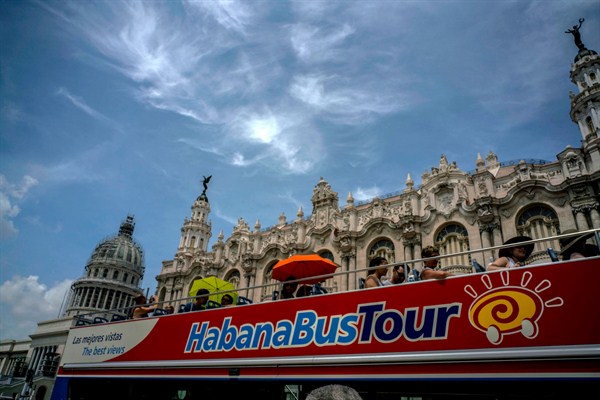“Effective immediately, I am canceling the last administration’s completely one-sided deal with Cuba,” President Donald Trump told a cheering crowd of Cuban exiles in Miami on June 16. That declaration was not quite true, since there was no single deal to cancel. President Barack Obama’s opening to Cuba included a series of bilateral agreements on issues of mutual interest and five packages of regulatory changes to the U.S. embargo that Obama made unilaterally in order to boost travel and trade.
Trump’s new policy, embodied in a Presidential Memorandum, partially closes two holes that Obama punched in the embargo. First, Trump’s new regulations will limit the “people-to-people” category of educational travel by restoring the requirement that visitors travel in groups with a licensed travel provider. No more self-guided tours—but visitors can still bring back rum and cigars.
Second, U.S. companies, and even individual travelers, will be prohibited from doing business with enterprises managed by the Cuban military, with the exception of enterprises that run the ports, airports and telecommunications. Those exceptions are important because they let U.S. cruise lines, airlines and tech companies off the hook. Of approximately 40 nonagricultural deals signed between U.S. and Cuban companies before Trump took office, almost all would be exempt. Only two hotel management deals, by Starwood Hotels and Wyndham Worldwide, would not be legal under the new regulations. But they are safe, too, because the presidential memorandum exempts existing contracts so as not to “disrupt” ongoing business, not to mention for fear of litigation.

